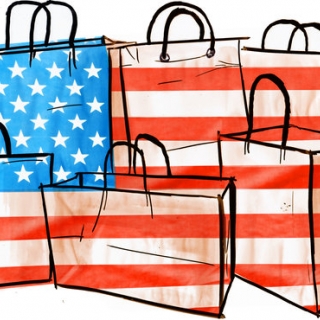


A U.S. appeals court ruled on Friday that most of President Donald Trump's global tariffs were illegal, finding he exceeded his authority when imposing them.
A panel of judges in Washington upheld an earlier decision by the Court of International Trade that Trump wrongfully invoked an emergency law to issue the tariffs. Despite the ruling, the tariffs will remain in place for now as the case continues through the legal system.
The ruling does not affect Trump's first-term Section 232 tariffs on steel, aluminum, and autos, nor the Section 301 tariffs on Chinese goods, as these were imposed under different legal authorities.
The legal challenge came from a coalition including 12 Democratic-led states such as Oregon, New York, and California, along with small businesses like importers of pipes, cycling gear, and fishing equipment. They argued the tariffs violated constitutional separations of power and exceeded the scope of the International Emergency Economic Powers Act (IEEPA).
In May 2025, the U.S. Court of International Trade granted summary judgment to the plaintiffs, ruling the tariffs were "ultra vires" (beyond legal authority) and contrary to law. The Department of Justice appealed and secured a temporary stay.
The Trump administration has indicated plans for an emergency appeal to the Supreme Court, while some Republican lawmakers have discussed legislation to retroactively authorize similar measures.
If ultimately upheld, the decision could lead to the cessation of the affected tariffs, potential refunds for importers, and set a precedent limiting presidential power in trade policy while shifting more authority back to Congress.
Source: Investing.com
US bonds fell after jobless claims fell to their lowest level since 2022, one of the last readings on the health of the US labor market before the Federal Reserve's interest rate decision next week. ...
According to a report from the US Department of Labour (DOL) released on Thursday, the number of US citizens submitting new applications for unemployment insurance went down to 191K for the week endin...
Treasury Secretary Scott Bessent on Wednesday predicted that the administration still will be able to implement its tariff agenda regardless of whether it prevails in a pending case before the Supreme...
Private businesses in the US cut 32K jobs in November 2025, following an upwardly revised 47K gain in October, and compared to forecasts of a 10K rise. Hiring was particularly weak in manufacturing (...
Ekonom terkenal Scott Bessent memprediksi bahwa Amerika Serikat kemungkinan akan mengalami pertumbuhan ekonomi yang kuat namun inflasi tetap rendah pada 2026. Menurut Bessent, faktor seperti harga ene...
US stocks closed higher on Friday (December 5), with the S&P 500 up 0.2%, the Nasdaq up 0.4%, and the Dow Jones Industrial Average up 0.2% as weak PCE data and positive sentiment in Michigan strengthened the likelihood of a 25bps Fed rate cut...
Oil prices edged up nearly 1% to a two-week high on Friday (December 5th) amid growing expectations that the US Federal Reserve will cut interest rates next week, which could boost economic growth and energy demand, as well as geopolitical...
Gold closed around $4,210 an ounce on Friday, near its highest level since late October, paring an earlier rally as a series of US data strengthened the case for an imminent Fed rate cut. Delayed September PCE rose 0.3% month-on-month and 2.8%...
 Asia Pacific stock markets opened quietly on Wednesday morning, with investors awaiting the release of key economic data from the United States and...
Asia Pacific stock markets opened quietly on Wednesday morning, with investors awaiting the release of key economic data from the United States and...
 Private businesses in the US cut 32K jobs in November 2025, following an upwardly revised 47K gain in October, and compared to forecasts of a 10K...
Private businesses in the US cut 32K jobs in November 2025, following an upwardly revised 47K gain in October, and compared to forecasts of a 10K...
 European stocks closed higher on Thursday (December 2nd), supported by a rebound in shares of major banks and automakers. The Eurozone STOXX 50 and...
European stocks closed higher on Thursday (December 2nd), supported by a rebound in shares of major banks and automakers. The Eurozone STOXX 50 and...
 Asia-Pacific stock markets opened lower on Friday, following the sluggish sentiment on Wall Street. In Australia, the ASX/S&P 200 fell 0.17%. In...
Asia-Pacific stock markets opened lower on Friday, following the sluggish sentiment on Wall Street. In Australia, the ASX/S&P 200 fell 0.17%. In...